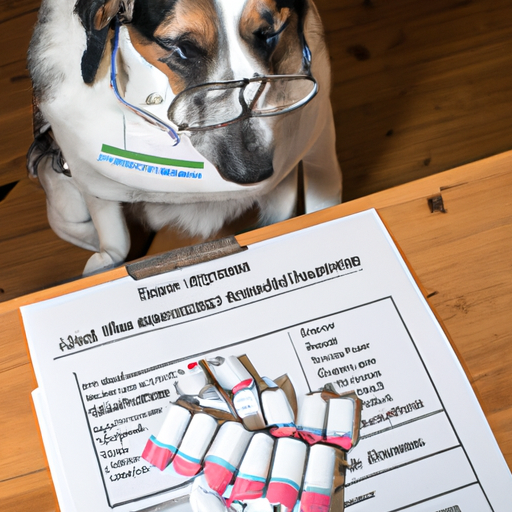As a caregiver, occasionally, you may find yourself in a situation where your furry friend is unwell, and the prospect of giving them human antibiotics crosses your mind. It’s a natural instinct to want to help, but it’s essential to be informed and cautious.
Understanding Antibiotics and Their Role
Antibiotics are powerful drugs used to treat bacterial infections. They target microorganisms such as bacteria by either killing them or inhibiting their growth. However, the effectiveness and safety of these drugs vary greatly between humans and dogs. Here’s what you need to know:
- Human vs. Dog Physiology: Dogs have a different physiology compared to humans. Their metabolism, body weight, and organ function are different, affecting how they process medications.
- Antibiotic Resistance: Misuse of antibiotics can lead to antibiotic resistance, a serious global health problem. This occurs when bacteria evolve and become resistant to the drugs designed to kill them.
- Side Effects: Antibiotics can have serious side effects in dogs, including allergic reactions, organ damage, or even death.
Common Antibiotics Safe For Dogs
While most human antibiotics should not be given to dogs without veterinary supervision, there are a few that are commonly prescribed by vets for canine use. These include:
- Amoxicillin: This penicillin-based antibiotic is used to treat infections caused by bacteria. It’s often prescribed for skin infections, urinary tract infections, and respiratory infections in dogs.
- Cephalexin: This antibiotic treats a wide range of bacterial infections. It’s often used for skin infections and bone infections in dogs.
- Enrofloxacin: Commonly used to treat urinary tract infections, skin infections, and respiratory infections in dogs.
| Antibiotic | Common Use |
|---|---|
| Amoxicillin | Skin, urinary tract, respiratory infections |
| Cephalexin | Skin, bone infections |
| Enrofloxacin | Urinary tract, skin, respiratory infections |
These antibiotics should only be given under the direct supervision of a vet.
The Risks of Giving Human Antibiotics to Dogs
It’s tempting to reach into your medicine cabinet when your dog is unwell. However, the risks far outweigh the potential benefits:
- Dosage Differences: The appropriate dosage for dogs is often much different than for humans. Overdosing can lead to toxic effects.
- Delayed Treatment: Using a human antibiotic may mask the symptoms without treating the underlying cause, causing a delay in proper treatment.
- Drug Interactions: Dogs may be on other medications that can interact negatively with certain antibiotics.
Consulting With a Vet: The Best Course of Action
In all cases, the best course of action is to consult with a veterinarian. They can:
- Diagnose the problem accurately.
- Prescribe the appropriate medication and dosage.
- Monitor your dog’s response to treatment.
Frequently Asked Questions
Q: Can I give my dog the same antibiotic I take?
A: No, you should never give your dog human antibiotics without a vet’s supervision.
Q: What if my dog is allergic to an antibiotic?
A: If you notice an allergic reaction, contact your vet immediately. Symptoms can include vomiting, diarrhea, or skin rashes.
Q: Can I use over-the-counter antibiotics on my dog?
A: No, only use antibiotics prescribed by a veterinarian for your dog.
In conclusion, while some human antibiotics can be used for dogs, it’s crucial to consult with a vet before administering any medication to your pet. As a caregiver, you want the best for your furry friend, and that means ensuring they receive the right care, at the right time, from the right professionals.



